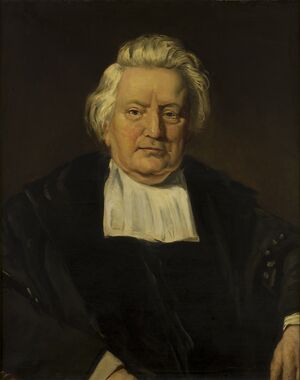Barikalus sanctions: Difference between revisions
m (→Coalition) |
|||
| (5 intermediate revisions by 4 users not shown) | |||
| Line 1: | Line 1: | ||
{{Kurum Ash-Sharqia article}} | {{Kurum Ash-Sharqia article}} | ||
{{Hurmu article}} | {{Hurmu article}} | ||
The '''Barikalus sanctions''' were imposed on [[Barikalus|Arboric Republic of Barikalus]] after the murder of the Emir and Emira. | The '''Barikalus sanctions''' were imposed on [[Barikalus|Arboric Republic of Barikalus]] after the murder of the Emir and Emira. The sanctions were lifted after the end of the war in {{AN|04|2022}}. | ||
== Murder and initial sanctions == | == Murder and initial sanctions == | ||
| Line 20: | Line 20: | ||
After the initial travel sanctions, economic sactions were added and [[Hurmu]] agreed to impose the same sanctions. | After the initial travel sanctions, economic sactions were added and [[Hurmu]] agreed to impose the same sanctions. | ||
Additionally, in view of the [[Barikalus–Hurmu conflict]], the [[Raspur Pact]] began to debate the imposition of similar measures at a session of the Permanent Commission in [[Lindstrom]] on 20.XIII.{{AN|1703}}. The proposed sanctions received support from the [[Benacian Union]], [[Floria]], [[Jaaland]], and [[Nouvelle Alexandrie]]. | Additionally, in view of the [[Barikalus–Hurmu conflict]], and after uproarious sessions of the [[Raspur Pact Parliamentary Assembly]], the [[Raspur Pact]] began to debate the imposition of similar measures at a session of the Permanent Commission in [[Lindstrom]] on 20.XIII.{{AN|1703}}. The proposed sanctions received support from the [[Benacian Union]], [[Floria]], [[Jaaland]], and [[Nouvelle Alexandrie]]. The [[Imperial State of Constancia]] acceded soon after for the personal amusement of the Basileus [[Giakoumis]]. | ||
* [[Kurum Ash-Sharqia]] | * [[Kurum Ash-Sharqia]] | ||
* [[Hurmu]] | * [[Hurmu]] | ||
*[[Confederation of the Phineonesian Nations]] | |||
== Sanctions == | == Sanctions == | ||
| Line 30: | Line 31: | ||
* All trade in goods and services to and from Barikalus is forbidden | * All trade in goods and services to and from Barikalus is forbidden | ||
== Sanaman response == | === Sanaman response === | ||
* To maintain neutrality, Sanama did not join the so-called coalition. It did however impose sanctions on Barikalus, after a vote in the Foreign Relations Committee. | * To maintain neutrality, Sanama did not join the so-called coalition. It did however impose sanctions on Barikalus, after a vote in the Foreign Relations Committee. | ||
** Travel between Barikalus and Sanama is cancelled for government officials. | ** Travel between Barikalus and Sanama is cancelled for government officials. | ||
** Trade in strategic goods, such as electronics, oil, and vehicles is temporarily halted between Sanama and both Barikalus and Hurmu. | ** Trade in strategic goods, such as electronics, oil, and vehicles is temporarily halted between Sanama and both Barikalus and Hurmu. | ||
* However, on 13.III.1704, in light of the continued aggression by Barikalus and the declaration of war, Sanama joined the coalition sanctions in full and restored full trade with Hurmu. | |||
== See also == | == See also == | ||
Latest revision as of 15:11, 10 January 2023
The Barikalus sanctions were imposed on Arboric Republic of Barikalus after the murder of the Emir and Emira. The sanctions were lifted after the end of the war in 1707 AN.
Murder and initial sanctions

In 1703 AN, during the Arboric Civil War, the Emir and Emira of Arbor were murdered. Mahmud bin Alsalam is the father of the princess-consort of Kurum Ash-Sharqia and the father-in-law of Sultan Salah Ad-Din I.
Within the royal family of Kurum Ash-Sharqia, their was intense personal grief and mourning.
Initially, the government of Kurum Ash-Sharqia didn't want to react or intervene the Arboric Civil War. This attitude changed soon after the speech of the President of Barikalus, in which he said:
- "The Emir and the Emira are dead. Although I did not order it, a great benefit has been done to our republic. For, my dear compatriots, we are rid of Micras' greatest fool."
Grand Vizier van Looveren said in an emergency session of Al-Majlis Al-Watani that
- "condoning the murder by no one less than a head-of-state, is a criminal act and the international community must react firmly. The Sultanate will take the lead."
As a result, travel sactions were imposed on 17.XII.1703 AN. Van Looveren asked other nations to join a coalition of sanctions.
Coalition
After the initial travel sanctions, economic sactions were added and Hurmu agreed to impose the same sanctions.
Additionally, in view of the Barikalus–Hurmu conflict, and after uproarious sessions of the Raspur Pact Parliamentary Assembly, the Raspur Pact began to debate the imposition of similar measures at a session of the Permanent Commission in Lindstrom on 20.XIII.1703 AN. The proposed sanctions received support from the Benacian Union, Floria, Jaaland, and Nouvelle Alexandrie. The Imperial State of Constancia acceded soon after for the personal amusement of the Basileus Giakoumis.
Sanctions
- Travel to Barikalus is forbidden for nationals of coalition partners
- All visas issued to Barikalus nationals are cancelled with immediate effect
- All trade in goods and services to and from Barikalus is forbidden
Sanaman response
- To maintain neutrality, Sanama did not join the so-called coalition. It did however impose sanctions on Barikalus, after a vote in the Foreign Relations Committee.
- Travel between Barikalus and Sanama is cancelled for government officials.
- Trade in strategic goods, such as electronics, oil, and vehicles is temporarily halted between Sanama and both Barikalus and Hurmu.
- However, on 13.III.1704, in light of the continued aggression by Barikalus and the declaration of war, Sanama joined the coalition sanctions in full and restored full trade with Hurmu.